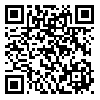Volume 13, Issue 1 (Spring 2006)
Journal of Translational Medical Research. 2006, 13(1): 9-15 |
Back to browse issues page
Download citation:
BibTeX | RIS | EndNote | Medlars | ProCite | Reference Manager | RefWorks
Send citation to:



BibTeX | RIS | EndNote | Medlars | ProCite | Reference Manager | RefWorks
Send citation to:
Khazaei T, Khazaei T, SharifZadeh G. Nurses' professional burnout and some predisposing factors. Journals of Birjand University of Medical Sciences 2006; 13 (1) :9-15
URL: http://journal.bums.ac.ir/article-1-62-en.html
URL: http://journal.bums.ac.ir/article-1-62-en.html
1- Instructor, Faculty of Nursing and Midwifery, Birjand University of Medical Sciences. Birjand, Iran , elaheh.kh1384@bums.ac.ir
2- Instructor, Faculty of Paramedicine, Birjand University of Medical Sciences. Birjand, Iran
3- Instructor, Faculty of Social Medicine, Birjand University of Medical Sciences. Birjand, Iran
2- Instructor, Faculty of Paramedicine, Birjand University of Medical Sciences. Birjand, Iran
3- Instructor, Faculty of Social Medicine, Birjand University of Medical Sciences. Birjand, Iran
Abstract: (23013 Views)
Background and Aim: Nurses are exposed to different types of stresses during their work. As a stressor, "burnout" is the decrease of personal adjustment with chronic stress leading to physical and emotional discomfort, negative attitude towards the profession while on duty. According to Maslach's theory organizational factors, interpersonal relationships, and intra- personal factors are the major causes of burnout. This condition brings about a lot of complications in one's family, personal and social life, and organization. This survey was designed to evaluate burnout rate among nursing staff in teaching hospitals in Birjand.
Materials and methods: This descriptive- cross sectional study was performed on all nursing staff of teaching hospitals in Birjand, who were selected through census sampling .Data gathering means were a multisegmental questionnaire including demographic characteristics, and Maslach burnout inventory (MBI); to evaluate emotional exhaustion, depersonalization, and lack of personal accomplishment. In order to analyze the data, statistical tests including χ2, Pearson's correlation coefficient, and independent t-test at the significant level P≤0.05 were used.
Results: More than third (35.5%) of the individuals, reported weak emotional exhaustion, 54.2% intense depersonalization, and 37.5% intense lack of personal accomplishment. The nurses' professional burnout rate between male and female in the domain of emotional exhaustion (P=0.02) and in depersonalization (P=0.034) were significant. Lack of personal accomplishment mean score was also varied between married and unmarried subjects (P=0.028). There was also a significant difference in the frequency of depersonalization in different working shifts (P=0.029).
Conclusion: Job burnout is a common phenomenon among nurses. It is related to a number of factors such as working condition, work experience, high workload, stresses, job satisfaction, gender and hardships of
working condition. Therefore it is suggested that these factors be surveyed more precisely and find ways to
reduce job burnout.
Results: More than third (35.5%) of the individuals, reported weak emotional exhaustion, 54.2% intense depersonalization, and 37.5% intense lack of personal accomplishment. The nurses' professional burnout rate between male and female in the domain of emotional exhaustion (P=0.02) and in depersonalization (P=0.034) were significant. Lack of personal accomplishment mean score was also varied between married and unmarried subjects (P=0.028). There was also a significant difference in the frequency of depersonalization in different working shifts (P=0.029).
Conclusion: Job burnout is a common phenomenon among nurses. It is related to a number of factors such as working condition, work experience, high workload, stresses, job satisfaction, gender and hardships of
working condition. Therefore it is suggested that these factors be surveyed more precisely and find ways to
reduce job burnout.
Type of Study: Original Article |
Subject:
Nursing
Received: 2006/09/6 | Accepted: 2016/03/10 | ePublished: 2016/03/10
Received: 2006/09/6 | Accepted: 2016/03/10 | ePublished: 2016/03/10
Send email to the article author
| Rights and permissions | |
 |
This work is licensed under a Creative Commons Attribution-NonCommercial 4.0 International License. |





